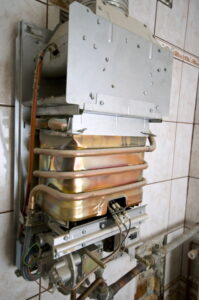 Gas furnaces are the top choice for a home furnace in Colorado Springs, CO. They’re powerful, provide heat fast, and the price of natural gas makes them less expensive to run than many other heating systems. But gas furnaces have an important restriction: they need a natural gas line to run.
Gas furnaces are the top choice for a home furnace in Colorado Springs, CO. They’re powerful, provide heat fast, and the price of natural gas makes them less expensive to run than many other heating systems. But gas furnaces have an important restriction: they need a natural gas line to run.
For homes without natural gas, the choice for central heating comes down to two choices: an electric furnace or a heat pump. Which is better?
There’s No Obvious Winner! (But Stay Tuned…)
The “electric furnace vs. heat pump” doesn’t have a clear winner because each home is different. What works for one may not work for another. The two heaters have advantages and disadvantages. If you’re considering installing one of these systems, HVAC technicians can help you weigh the pros and cons so you can make the best choice.
We can provide some assistance here by examining where heat pumps and electric furnaces excel, and where they can fall behind.
The Electric Furnace
The operation of an electric furnace is simple to understand. Electricity flows through a series of heating elements located inside the furnace, which causes the elements to turn hot. As air moves through the furnace, it picks up heat from the heating elements. This is called electrical resistance heating, and it’s identical to the way a toaster works: run an electric current through metal, the metal gets hot.
Electric furnaces are reliable systems that can generate enough heat for a home during our cold winters. They’re less expensive than either heat pumps or gas furnaces, and they can enjoy long service lives with few repair issues.
On the downside, electric furnaces can be costly to run. They consume large amounts of electricity, which is an expensive energy source. They also provide heat at a slower rate compared to gas furnaces or heat pumps.
The Heat Pump
Heat pumps are refrigeration-based units that operate as both air conditioners and heaters. It only takes an adjustment on the thermostat to switch a heat pump from one mode to the other. This is one of their biggest advantages, and if you’re looking to replace both your current AC and heater, a heat pump becomes more appealing.
Heat pumps can help save energy when in heating mode because they don’t consume as much electricity as an electric furnace. They use electricity to move heat, not generate it, and that makes a big difference in energy costs over winter.
What’s not to like? Well, heat pumps can struggle with energy efficiency in extremely low temperatures since they must transport their heat from outside a house. There’s always heat available outdoors, no matter the temperature, but heat pumps must consume a greater amount of energy when in below-freezing conditions. Some heats pumps require supplemental heat (such as from a propane furnace) to help make them efficient.
We’ll Help You Choose
Still not sure if a heat pump or an electric furnace is the best choice for your all-electric house? No need to worry: call our experts and they’ll help you find the heating system that meets all your needs.
Robbins Heating & Air Conditioning serves Colorado Springs and the surrounding area. Talk to our HVAC pros today to find out your best options for a new central heating system.
